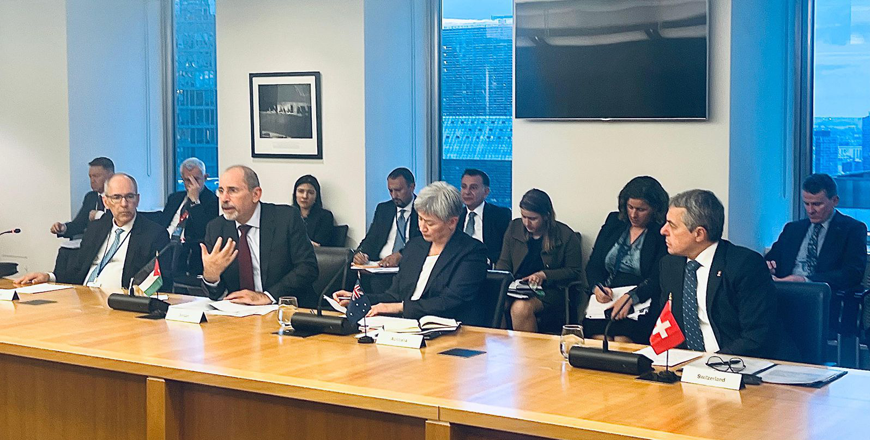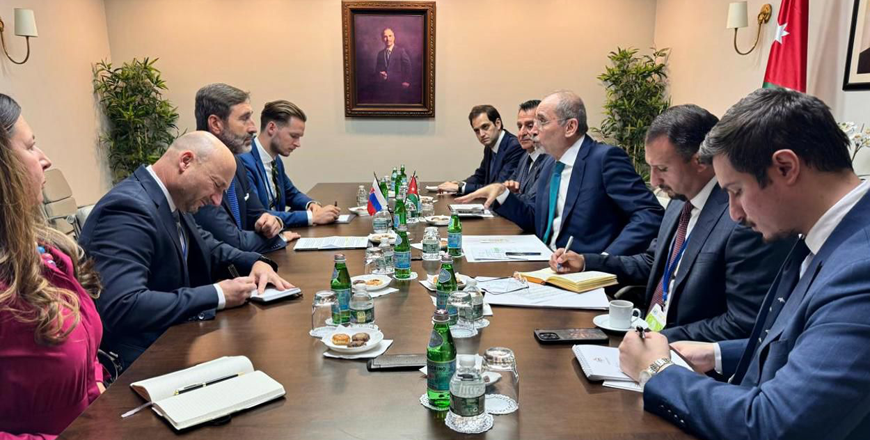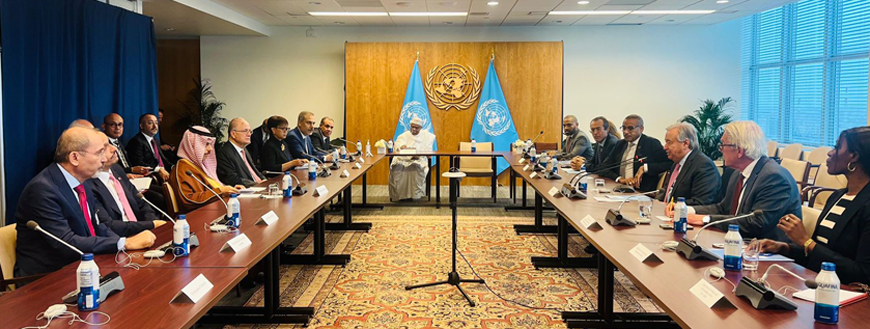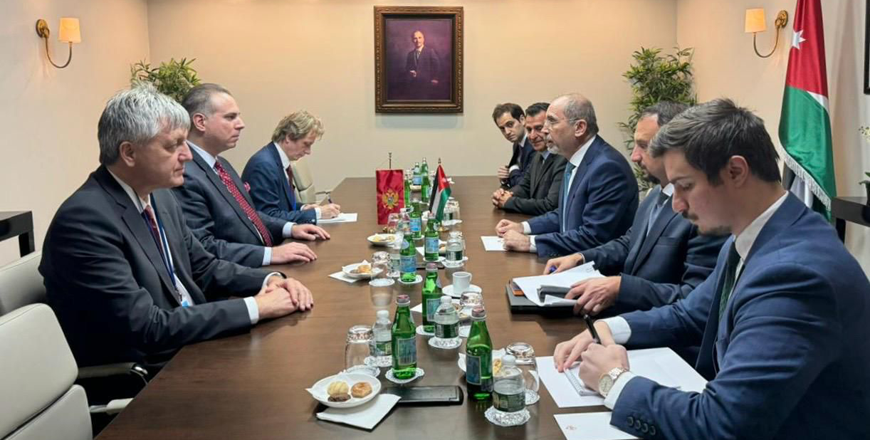You are here
Arab League Council ministers condemn Israeli aggression on Gaza, Lebanon
By JT - Sep 24,2024 - Last updated at Sep 24,2024

Deputy Prime Minister and Foreign Ayman Safadi participates on Monday in a consultative ministerial meeting of Arab League member states, held on the sidelines of the 79th session of the United Nations General Assembly (Petra photo)
- International coalition formed to protect aid workers in Gaza
- Trilateral talks between Jordan, Egypt, Japan focus on ending Gaza crisis
AMMAN — Deputy Prime Minister and Foreign Ayman Safadi participated on Monday in a consultative ministerial meeting of Arab League member states, held on the sidelines of the 79th session of the United Nations General Assembly.
Talks during the meeting, chaired by Yemeni Foreign Minister Shayea Mohsen Zindani, who chairs the 162nd ministerial session of the Arab League Council, focused on pressing regional issues, including Israeli aggression on Gaza and Lebanon and the escalating violence in the occupied West Bank.
During the discussions, the ministers expressed "strong" solidarity with Lebanon, condemning the recent Israeli attacks, which have resulted in hundreds of civilian casualties, according to the Jordan News Agency, Petra.
They collectively held Israel responsible for the dangerous escalation, warning that it could trigger a regional war and threaten the stability of the entire region.
The ministers also agreed on the importance of cooperating with member states of the Islamic Group to present a unified message to the international community, calling on Israel to immediately cease hostilities.
Safadi also attended a separate event hosted by Australian Foreign Minister Penny Wong on the protection of humanitarian workers.
Safadi stressed the importance of protecting aid organisations and their staff, particularly UNRWA, which provides vital services to Palestinians in Gaza.
During the event, a coalition of countries, including Jordan, Australia, Switzerland, Indonesia, Sierra Leone, the United Kingdom, Japan, Brazil, and Colombia, announced the formation of a ministerial group on the protection of humanitarian workers.
The group aims to bolster international humanitarian law and implement measures to ensure the safety of humanitarian personnel operating in conflict zones.
In a joint statement following the meeting, the group stressed that international humanitarian law is vital in alleviating human suffering during wars.
The statement also highlighted the serious challenges facing humanitarian law, citing 280 deaths of aid workers in 2023 and warning that 2024 could be even more perilous, adding that Gaza was identified as the most dangerous location for humanitarian workers, with over 300 deaths recorded since the outbreak of the war.
The ministerial group also pledged to work closely with humanitarian organisations to implement UN Security Council Resolution 2730, aimed at reinforcing international commitments to protecting aid workers.
Also on Monday, Safadi met with Swiss Foreign Minister Ignazio Cassis over the urgent need to stop the Israeli aggression on Gaza and Lebanon.
Both ministers highlighted the significance of sustained humanitarian assistance to Gaza, calling for increased international support for UNRWA, which serves over 5.9 million Palestinian refugees across its five areas of operation.
Safadi also participated in a trilateral meeting with Egyptian Foreign Minister Badr Abdelatty and Japanese Foreign Minister Yoko Kamikawa over enhancing cooperation between Jordan, Egypt, and Japan on regional issues, particularly the ongoing Israeli aggression and the escalating tension in the West Bank.
The ministers reiterated the need for joint efforts to end the humanitarian crisis in Gaza and to uphold the rights of the Palestinian people, reaffirming their commitment to the two-state solution.
They also underscored the importance of enforcing UN Security Council Resolution 1701, which addresses Israel's aggression against Lebanon, to prevent further escalation that could lead to a wider regional war.
Related Articles
AMMAN — Deputy Prime Minister and Foreign Minister Ayman Safadi on Tuesday continued his meetings with counterparts, on the sidelines of the
AMMAN — Deputy Prime Minister and Foreign Minister Ayman Safadi, along with members of the Arab-Islamic ministerial committee assigned to ra
AMMAN — Deputy Prime Minister and Foreign Minister Ayman Safadi met on Monday with Deputy Prime Minister for European Affairs and Foreign Mi














